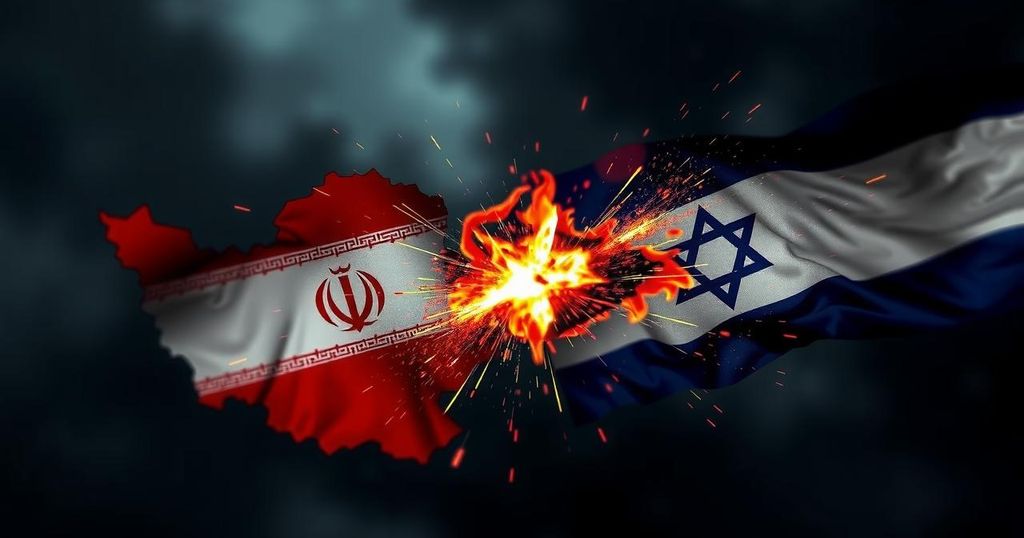Iran has threatened retaliation following Israeli airstrikes that killed two soldiers, while Hezbollah intensified its attacks with rocket fire against Israeli positions in southern Lebanon. The conflict is emblematic of the ongoing hostilities between Iran and Israel, with significant regional implications.
Iran has issued indirect threats in response to recent Israeli airstrikes that resulted in the deaths of two Iranian soldiers; however, no immediate retaliation actions have been declared. The Iranian Foreign Ministry articulated that Iran retains both the right and responsibility to defend itself against perceived foreign aggression. In addition, a semi-official Iranian news outlet indicated that a “proportional reaction” would follow the Israeli offensive. This rhetoric followed Israeli military operations aimed at Iranian assets, including the destruction of drone and ballistic missile production facilities as well as air defense systems. Among the targets was a Russian-produced S-300 air defense system situated at Imam Khomeini International Airport. Reports indicate that the Israeli airstrikes were a response to Iran’s missile attacks against Israel conducted earlier in the year. Following these developments, Iran claimed to have successfully intercepted most of the Israeli strikes, reporting only minor damage and confirming the loss of two soldiers. Israeli military officials stated that their operations aimed to deter ongoing assaults from Iran against Israel while emphasizing efforts to minimize collateral damage. Additionally, the United States refrained from supporting the Israeli strikes but urged Iran to halt its attacks on Israel to prevent escalation. Compounding these tensions, Hezbollah launched a barrage of rockets against Israeli targets, indicating a broader regional conflict and intensifying concerns regarding potential retaliatory actions from other Middle Eastern regimes. By mid-afternoon local time, Hezbollah had reportedly fired approximately 80 rockets into northern Israel, further escalating the situation. The Taliban in Afghanistan condemned Israel’s actions, suggesting they worsened regional instability and conflict.
The conflict between Iran and Israel has been marked by escalating hostilities and military engagements, stemming from long-standing political tensions and mutual distrust. In recent months, both nations have engaged in several clashes, with Iran being accused of targeting Israel through proxy groups like Hezbollah and conducting missile attacks. Israel, in turn, has been proactive in targeting Iranian military installations aimed at deterring these threats. The ongoing conflict is intertwined with broader geopolitical issues in the Middle East, including instability in various neighboring countries and the interests of global powers.
In summary, the fragile situation in the Middle East continues to unravel with the recent exchange of hostilities between Iran and Israel. While Iran has expressed its intention to react to Israeli aggression, it has not launched an immediate countermeasure. Hezbollah’s active engagement adds another layer of complexity to an already volatile landscape. The international community remains concerned over the potential for further escalation, urging restraint from both sides. Understanding the historical context and the nuances of these interactions is crucial for comprehending the underlying tensions at play in this region.
Original Source: nypost.com






